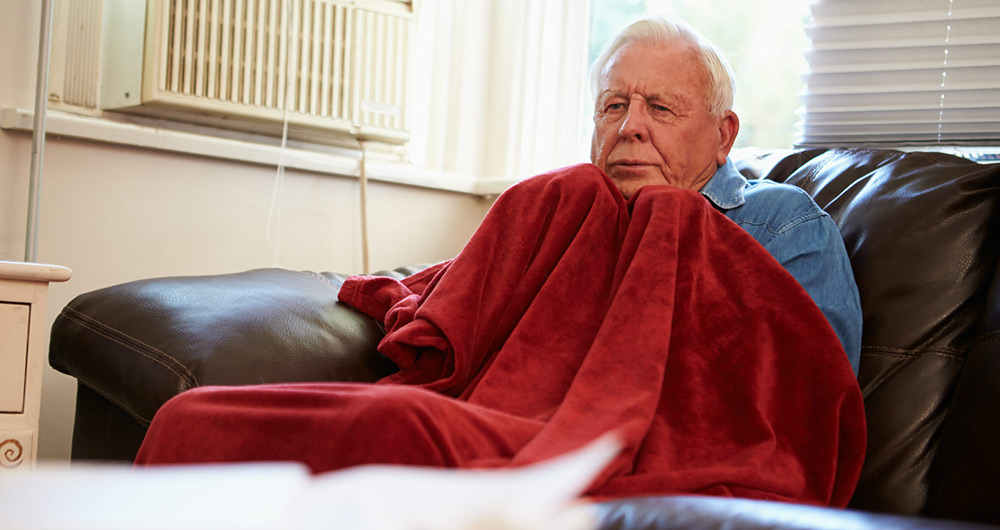Keeping older Aussies warm over winter
Monday, 4 June 2018

A new study that focuses on improving housing design to keep older people warm over winter and cool over summer, could help Australians live independently for longer.
The three-year Australian Research Council Discovery Project is being led by University of Adelaide researchers in architecture, building, public health, and gerontology (study of ageing), in conjunction with Dr Joost van Hoof, Professor of Urban Ageing at The Hague University of Applied Sciences in the Netherlands.
The study investigates the links between weather, behaviour in the home, energy use and the wellbeing of South Australians over the age of 65, with the aim of producing a set of guidelines for housing design that will help maintain people’s comfort in their homes as they age.
“Most Australians want to live independently for as long as possible – either in their own home or in housing purpose-built for older people,” says Chief Investigator of the project, Professor Veronica Soebarto, from the University of Adelaide’s School of Architecture and Built Environment.
“As we age, our body’s ability to regulate internal temperature changes, we lose muscle strength, and we may experience symptoms that can be exacerbated by hot or cold environments.
“Houses that are draughty, lack insulation, have windows or blinds that are difficult to operate, or heaters and coolers that use a lot of energy, can lead to older people shivering through winter and sweltering in summer,” says Professor Soebarto.
“Housing design that takes into account the weather, the ageing process, and the behaviour of older people, will enhance quality of life, reduce the need for institutional care and reduce public health costs”, says Professor Dino Pisaniello from the School of Public Health, who is also a Chief Investigator of the project.
Professor Soebarto says: “It could also provide environmental benefits through reduced energy use and carbon emissions.
“Lessons learned will allow the development of guidelines based on evidence. The guidelines will propose practical, simple and affordable solutions including the embracing of smart technologies, so that housing can be easily adapted to our needs as we age,” she says.
South Australians over the age of 65 are being asked to participate in the study, which will also involve local councils and aged care providers. Telephone interviews with some participants have already begun, to be followed by a series of focus groups.
Researchers are seeking people over the age of 65, from metropolitan and regional South Australia, to participate in focus groups from July this year. People interested can contact Dr Helen Bennetts from the University of Adelaide via helen.bennetts@adelaide.edu.au or +61 466 552 071.
Contact details
Email: veronica.soebarto@adelaide.edu.au
Website: http://www.adelaide.edu.au/directory/veronica.soebarto
School of Architecture and Built Environment
Business: 8313 5695
Mobile: 0405 148 466
Professor Dino Pisaniello
Email: dino.pisaniello@adelaide.edu.au
Website: http://www.adelaide.edu.au/directory/dino.pisaniello
Director
Adelaide Exposure Science and Health, School of Public Health
The University of Adelaide
Mobile: 0417 876 077
Dr Helen Bennetts
Email: helen.bennetts@adelaide.edu.au
ARC Research Associate
School of Architecture and Built Environment
The University of Adelaide
Mobile: 0466 552 071
Kelly Brown
Email: k.brown@adelaide.edu.au
Communications Coordinator
External Relations
The University of Adelaide
Business: +61 (8) 8313 3943







